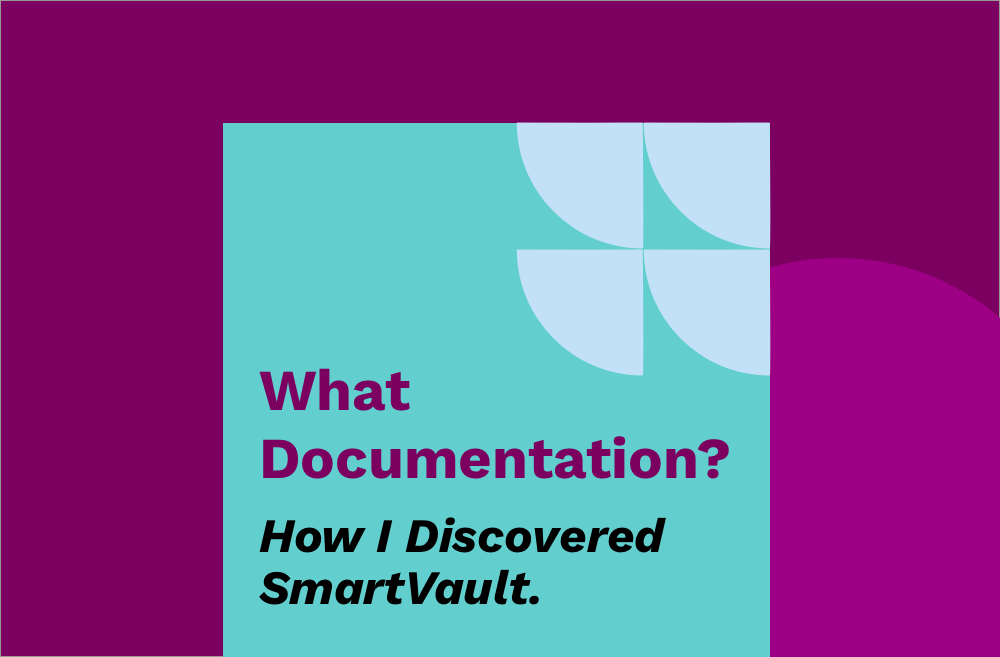
What Documentation? How I Discovered SmartVault.
I still remember the moment five years ago when I realized that my ‘routine audit’ engagement would no longer be routine.
My client just received an Information Document Request from the IRS examiner with a lengthy list of documents they needed to supply. As we were reviewing the list, my client told me about the fire.
When Disaster Strikes: What Happened When My Client Lost All Their Documents
“A fire in an apartment set off the fire suppression system,” my client told me. “The water poured through that apartment into the storage room, flooding our filing cabinets. The documents were turned into paste,” they explained as they showed me photos of the damage.
“Great,” I said. That was the only response I could think of as I started jumping several steps ahead of the current situation. I knew I had to bring my forensic expert, Dawn Brolin, CPA, CFE, to reconstruct the destroyed documents.
Dawn and I sat with my client at their conference room table a week later. After Dawn reviewed all my client’s documents and information, she explained how she could reconstruct most of it with their help. After all, as Dawn told us, there is no such thing as having “no records.”
Consider the following as examples:
- Checks can be obtained from the bank
- Significant vendors can reissue invoices and send accounting records
- Automobile miles and expenses can be recreated from automobile records, Carfax reports, oil changes, and tire changes
- Real estate improvements can often be reconstructed by photos (before and after) on the MLS real estate listing when the property was bought and sold
Taxpayers are required to maintain records. What most do not understand, though, is that the taxpayer must prove they are entitled to the deductions. Hence, our client bore the burden of proving the deduction.
Does this mean that the IRS can blanket deny their deductions when the records are lost or, in this case, turned into paper goo? Maybe.
While taxpayers are responsible for proving they are entitled to the deduction they have claimed, the IRS is not allowed to deny a deduction that the taxpayer incurred to create the income. A taxpayer’s estimate of the expenses is enough to shift that burden to the IRS. The case that does that is Cohan vs. Commissioner.1
Mr. George Cohan was an American Icon: singer, actor, and producer.2 He ran a small theater on Broadway in New York City and would recruit new shows to his theater by traveling to various cities, seeing shows, and then negotiating for them to come and hold performances in his theater. He took his attorney on these trips so any legal documents could be executed then and there.
Mr. Cohan did not keep receipts of his travel expenses, but he could estimate them. The IRS audited Mr. Cohan and denied all deductions due to the lack of receipts, despite admitting that he must have traveled to recruit the shows for his New York theater.
The Circuit Court rejected the IRS’s approach, stating that where there was evidence, the taxpayer had incurred the expense. So even where Dawn could not specifically prove the exact expense, if it was one that there was evidence the taxpayer must have incurred to generate the income, then the use of estimates should be allowed.
A Faster Recovery: Using Technology to Recover After Data Loss
“We also have to make sure this never happens again, so let me show you how we will set you up on SmartVault,” said Dawn.
“SmartVault?” I asked.
That day, Dawn introduced my clients and me to SmartVault’s cloud-based document management system and client portal. SmartVault allows for substantiating expenses in case of an audit and for business continuity in the event of a disaster. Given the coming onslaught of IRS audits of the 10 million non-filers they have identified, along with the more extreme weather that has developed, maintaining records in a secure way that can be accessed from anywhere has become more critical than ever.
At my law firm, our clients submit their documents online, which lets us securely collect, organize, and store them. We can quickly access files as needed and provide them to a government agency (or anyone else) regardless of where we are, where the client is, or what has occurred regarding time or natural disasters.
If you are not using SmartVault in your practice and with your clients, you are gambling with their money, your money, and your very practice. SmartVault saves time, money, and, most importantly, sanity.
References:
1. Second Circuit Court of Appeals, No. 114, March 3, 1930
2. Among his many hit songs are "Give My Regards to Broadway" and "Yankee Doodle Boy", and he has appeared on a US Postage Stamp and the cover of Time Magazine (October 9, 1933.
Eric Green is one of the managing partners of Green & Sklarz LLC where he focuses his practice on civil and criminal taxpayer representation, and he is the founder of Tax Rep Network where he coaches accountants and attorneys on building their IRS Representation practices.